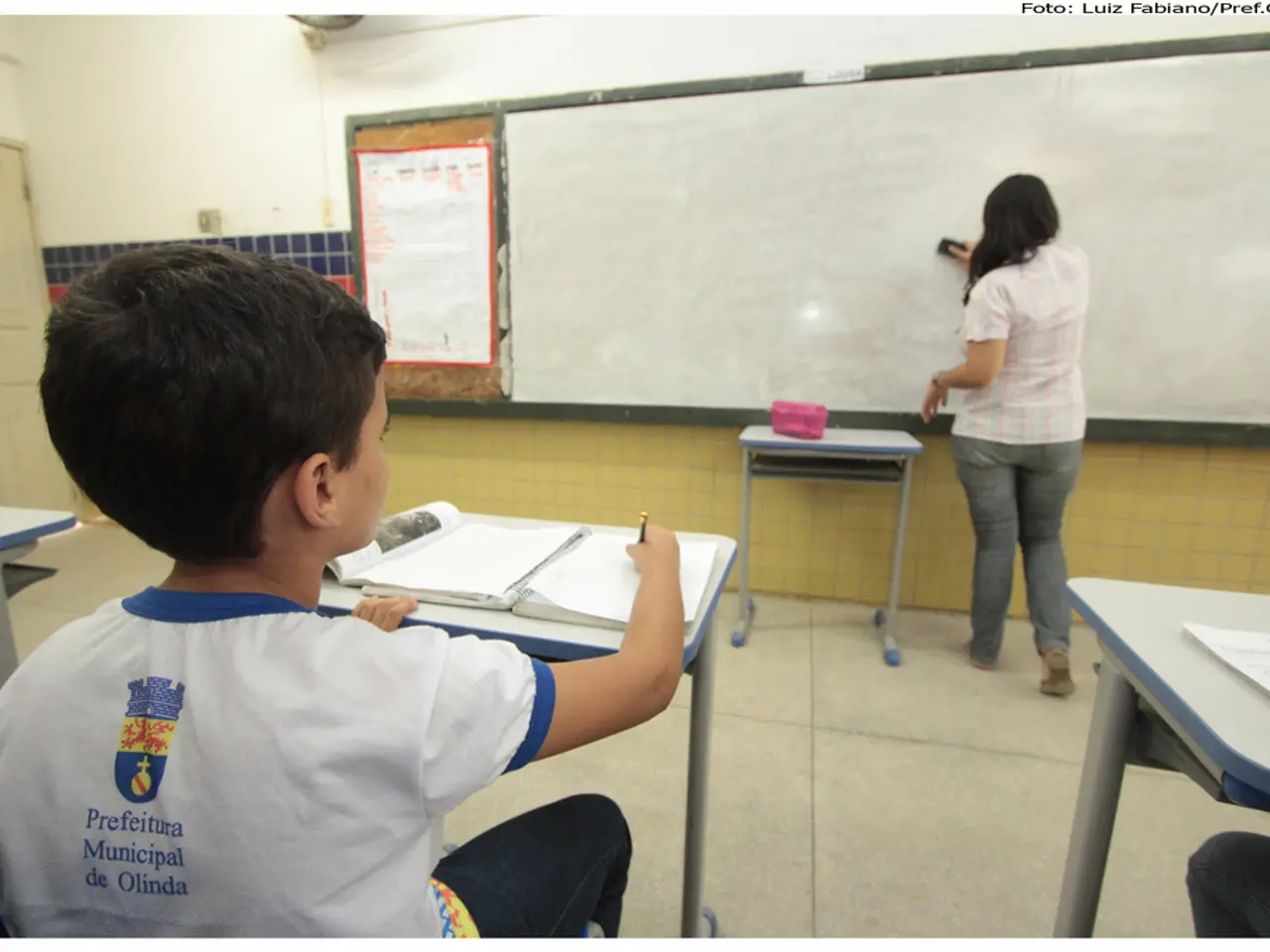Observing the Reactions of Parents to the Academic Achievements of Their Children's Report Cards
In the world of education, the traditional numerical grading system is being challenged, as educators and psychologists advocate for a more holistic approach to assessing student performance.
Cornelia Schwartz, a mathematics and English teacher, urges parents to exercise moderation when rewarding good grades. She warns against using monetary rewards, arguing that they can foster a sense of external motivation rather than an intrinsic love for learning.
Numerical grades, while providing a standardized, objective measure of student achievement, often fall short in capturing the nuances of learning processes. They can induce anxiety and do not always offer actionable information for students to improve. As a result, educators are increasingly turning to alternative feedback methods, such as formative assessments, rubrics, self-assessment, and peer feedback.
Formative assessments, less formal and less stressful than traditional tests, provide ongoing, real-time feedback during the learning process. They help both students and teachers identify areas of misunderstanding and adjust instruction promptly. Rubrics, on the other hand, offer detailed qualitative feedback by clearly outlining criteria and levels of performance, helping students understand expectations and areas for improvement beyond a single number.
Self-assessment and peer feedback encourage metacognition and personal responsibility for learning, often resulting in better student outcomes and motivation. Technology-enhanced assessments, including AI-assisted grading and feedback, show promise in providing timely, personalized, and detailed feedback that supports quality learning outcomes more effectively than numerical grades alone.
Stefan Jakobs of the Education and Science Union (GEW) in Rhineland-Palatinate calls for more qualitative feedback on report cards, focusing on specific skills and weaknesses. The GEW also suggests adding competency grids to report cards to provide more detailed information about students' abilities.
When a child receives poor grades, Nina Grimm, a family psychologist and author, suggests giving them space to express their disappointment and avoiding punishment. Instead, she encourages a calm and supportive approach, allowing children to forge their own paths.
The debate over the effectiveness of numerical grades extends to the correlation between academic performance and future career success. According to Nina Grimm, there is no significant correlation between the two, emphasizing the importance of nurturing well-rounded individuals rather than academic superstars.
However, the shift towards holistic feedback is not without challenges. Some parents are increasingly contesting report card grades, but this is often unsuccessful due to the subjective nature of grading in many subjects. Lawyer Benedict Bock advises parents to exercise restraint and consider cooperative solutions before contesting report card grades legally.
As the school year draws to a close, students in Rhineland-Palatinate are eagerly awaiting their report cards. The anticipation is not just for the numerical grades, but for the written assessment of their performance, some receiving a written assessment for the first time.
In summary, while numerical grades continue to play a significant role in evaluating student performance, alternative methods like formative assessments, rubrics, and personalized feedback are increasingly being recognized as more beneficial for fostering student growth, deeper understanding, and sustained engagement in learning. Effective educational assessment systems tend to integrate both approaches, using numerical grades for summative purposes alongside richer qualitative feedback to support ongoing learning.
- Cornelia Schwartz, advocating for an intrinsic love for learning, advises against using monetary rewards for good grades in health-and-wellness and parenting, as they might foster external motivation instead.
- Formative assessments, offering real-time feedback and helping identify areas of misunderstanding, are a valuable alternative to numerical grades in science, education-and-self-development, and general-news.
- Self-assessment and peer feedback, promoting metacognition and personal responsibility for learning, are often beneficial for better student outcomes in various subjects, including health-and-wellness and parenting.
- Stefan Jakobs, from the Education and Science Union (GEW) in Rhineland-Palatinate, proposes more qualitative feedback on report cards, focusing on specific skills and weaknesses, as well as adding competency grids to provide more detailed information about students' abilities in the realm of crime-and-justice and education-and-self-development.




